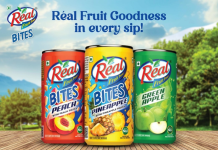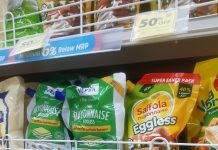
The first edition of the Rural Marketing Summit India was organized by Messe Frankfurt India in association with the Rural Marketing Association of India (RMAI) and MART Global Management Solutions, from 7 to 8 August 2019 in New Delhi.
The event was inaugurated by Anil Pratap Singh, adviser – Agriculture, NITI Aayog, Government of India, along with the IT veteran Som Mittal and Pradeep Kashyap, who is known as the father of Rural Marketing, and Biswabaran Chakrabarti, president of the Rural Marketing Association of India.
The summit was introduced with the perspective of enhancing the reach of various organizations in the rural market and aimed to be a platform to probe and explore winning strategies in the currently dynamic rural environment. It also served as a platform to bring together leading stakeholders to deliberate learnings from successful rural strategies and facilitate marketers to effectively cater to rural Indian consumers across sectors.
The two-day summit included several panel discussions between the senior FMCG industry leaders, policy makers and consultants on understanding the rural consumer, digital technologies in rural India, public private partnerships in providing affordable solutions, reaching the last mile and ensuring the right product, among others.While sharing brand case studies during a panel discussion, the moderator Pradeep Kashyap addressed the issue of product design for the rural market and said, “We should not push the same products that we have developed for the urban market into the rural market. Rural market is bigger than the urban market, but we have a perception that rural people buy cheap products. In reality, they don’t buy cheap products; in fact, they buy valuable products.”
Rural India is an opportunity
Rasneet Kaur, marketing lead – Rural Business, GSK Consumer Healthcare admitted that rural areas represent an opportunity for GSK and said, “If you just look at rural India, 62% of pregnant women are anemic, 50% of the women in rural areas are malnourished and the same is with their children. This is one of the neglected verticals of the rural areas. We at GSK create the category need first. We understand their nutritional needs and create categories for them.” She also added that GSK makes people understand what their product does to them. “We are aware that the palates for rural and urban differ, so we are formulating products with various taste modifications. For example, Boost does not have the same taste in Delhi and in South India,” she said.
Gul Raj, vice president – Healthcare, Dabur India agreed that Dabur’s products were evolved for future. He said, “We have developed products keeping the rural consumer in mind. Our home remedies are put in a package and offered to the consumer at an affordable price.” He acknowledged that rural consumers have less disposable income and they are inclined to products that are affordable, offer value for money and are more acceptable for daily usage.
“Dabur has a unique approach to designing products and creating formats that are acceptable in the rural market. At Dabur, we do a lot of reverse engineering and we have benchmarks for pricing where we offer equally comparable margins as the local brands offer to rural retailers,” Raj shared.
Rajat Kumar, category head, Maggi Noodles shared insights about Nestle and said, “Nestle is a premium product company. All of its products undergo many stages of value addition before they are cooked and served.” He also made the audience aware of the innovation and renovation processes of the company’s products.
The key takeaway for the panel discussion was – For rural consumers, price is not necessarily the biggest concern. In fact, it is really the creation of value through relevance.
The conclave witnessed participation from various industries including FMCG and media where eminent speakers represented the entire cross-section of the FMCG industry who addressed the opportunities and challenges within the industry.









